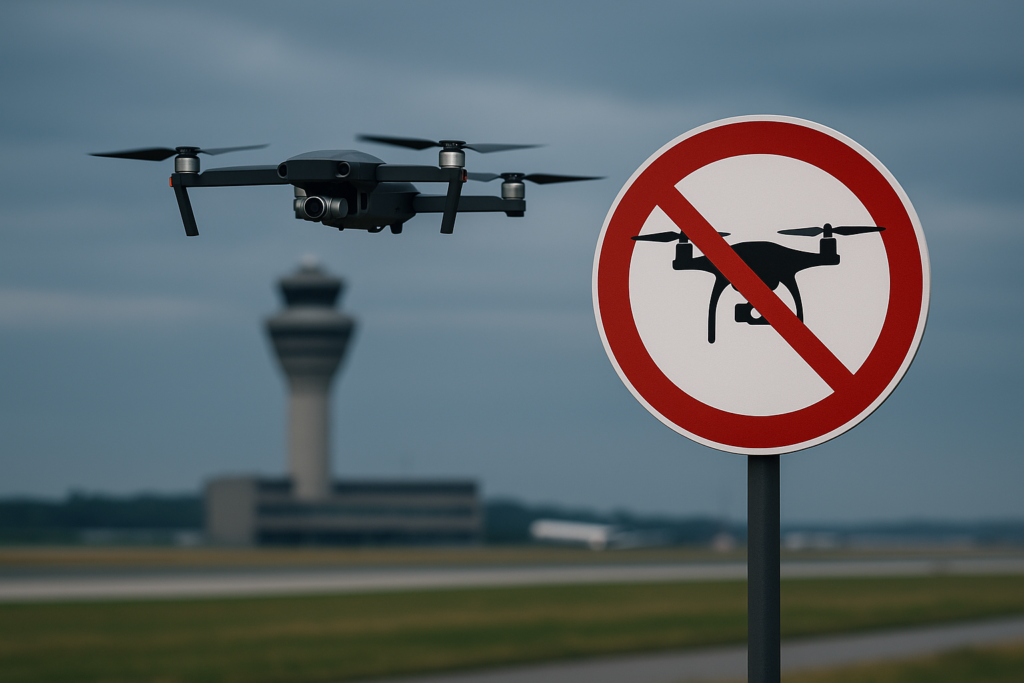The Noida International Airport in Jewar has been officially designated as a Red Zone under India’s civil aviation safety framework, prompting an immediate and complete ban on all unauthorized drone operations in the surrounding area. This decision has been taken in accordance with security protocols prescribed by the Directorate General of Civil Aviation (DGCA) and the Ministry of Civil Aviation, as the airport nears operational readiness.
The Red Zone classification restricts all types of unmanned aerial vehicle (UAV) activity—commercial, recreational, or survey-based—within the designated airspace. The enforcement aims to protect critical aviation infrastructure, ensure public safety, and prevent potential disruptions to air traffic operations.
Understanding the Red Zone Airspace Restriction
According to DGCA’s Unmanned Aircraft System (UAS) Rules, 2021, a Red Zone is a strictly controlled no-fly zone extending:
- Up to 5 kilometers from the airport perimeter
- Vertically up to the prescribed drone operational ceiling
Flying a drone in this zone without prior approval from the Ministry of Home Affairs and DGCA is a criminal offence, and may attract stringent penal action.
Legal Provisions and Penalties
The enforcement of this airspace restriction is backed by the Aircraft Act, 1934 and other applicable aviation regulations. Any individual or entity found operating drones in this restricted zone:
- May face imprisonment, monetary penalties, or both
- Will have their drone equipment seized and confiscated
- Could be booked under national security and public safety violations
Local police authorities and airport security have been instructed to maintain round-the-clock surveillance, supported by anti-drone monitoring systems, to detect and prevent violations.
Public Advisory Issued
District authorities have issued a formal public advisory, urging drone owners, videographers, surveyors, and recreational users to strictly refrain from flying drones near the airport site. Citizens have been encouraged to report any suspicious aerial activity to the nearest police station or airport security cell.
The Noida International Airport, once operational, is expected to handle millions of passengers annually and play a key role in enhancing air connectivity in northern India. Maintaining a secure aerial perimeter during its construction and operational phases is essential.


